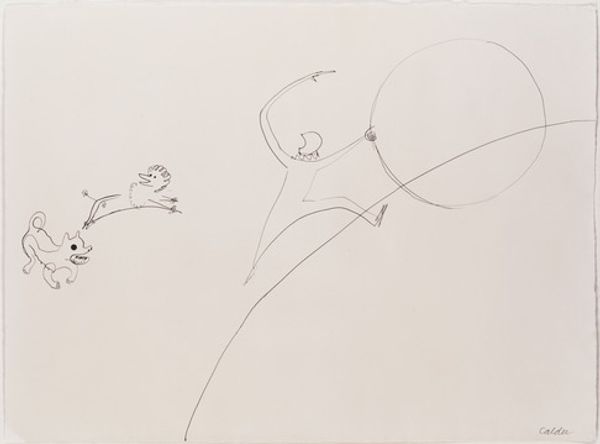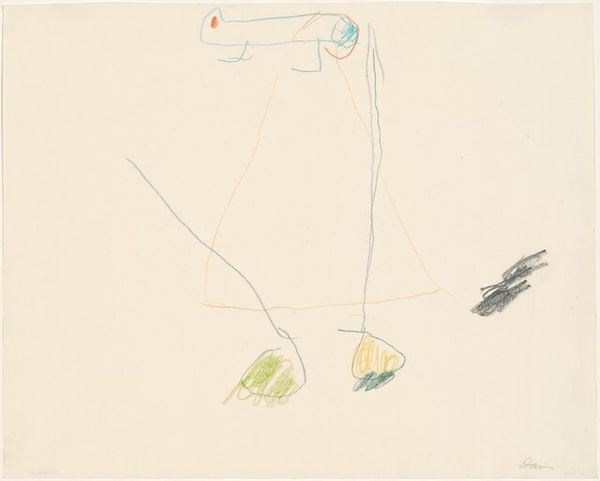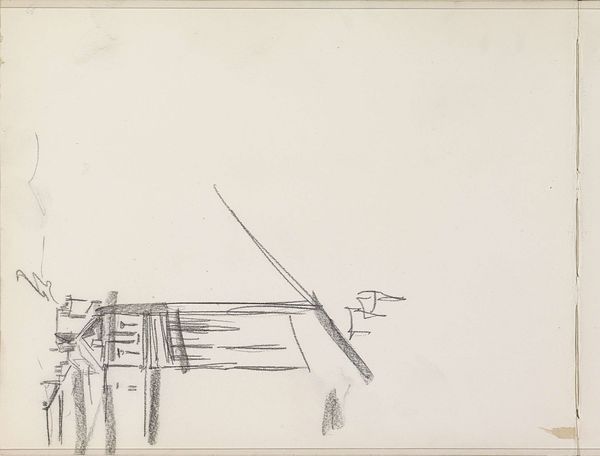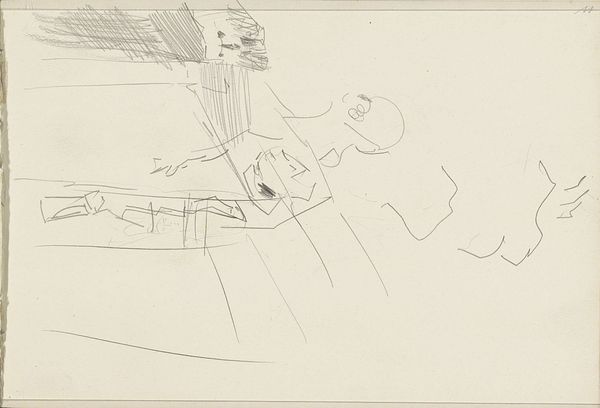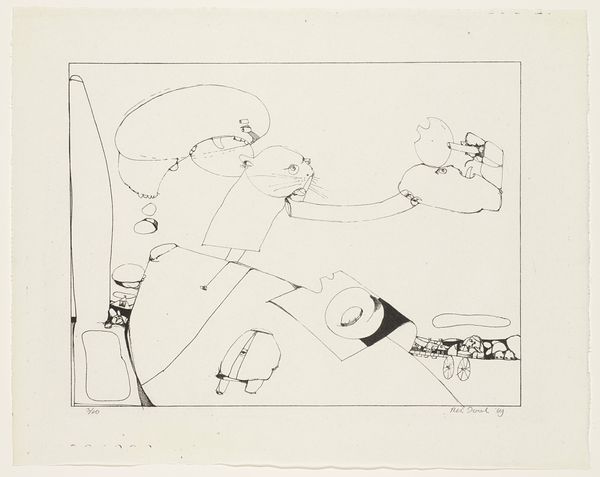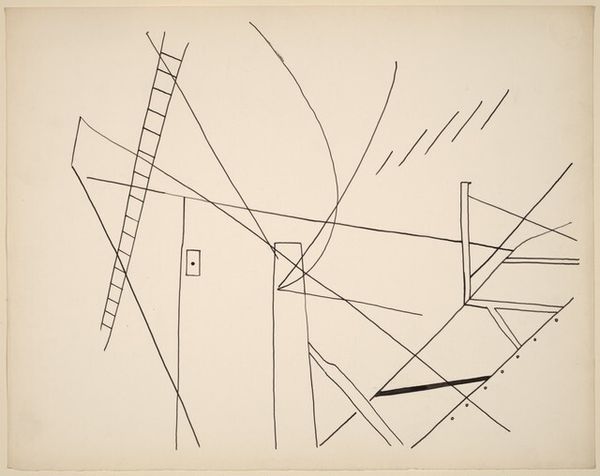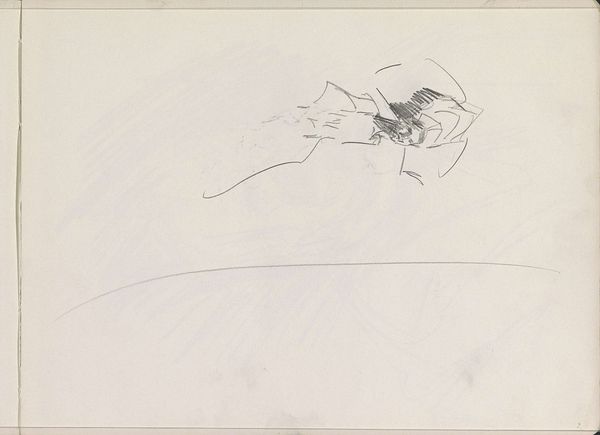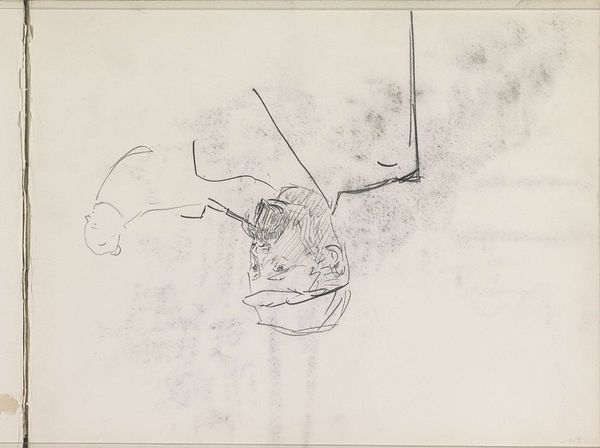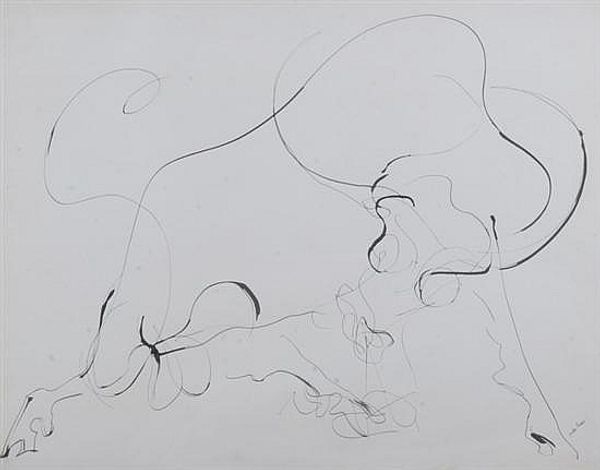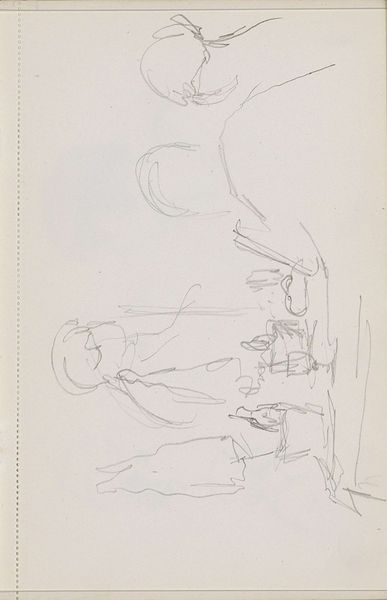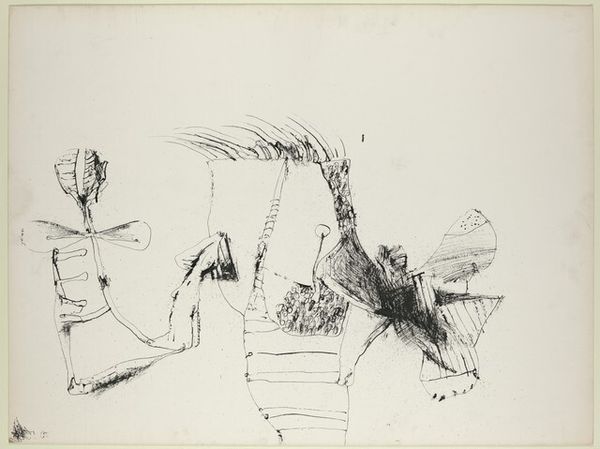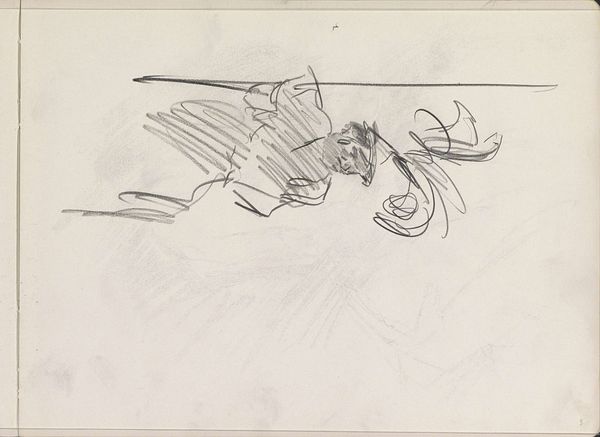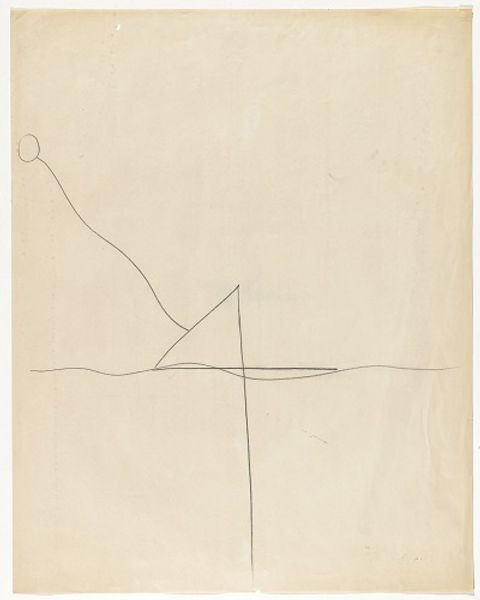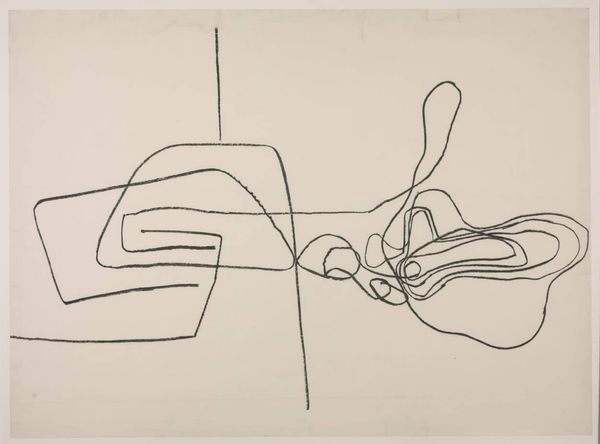
drawing, print
#
portrait
#
drawing
# print
#
figuration
#
line
#
surrealism
Copyright: Alexander Calder,Fair Use
Curator: Here we have Alexander Calder's "Tightrope Walker," created in 1932 using printmaking techniques. Editor: This piece feels incredibly light and airy. I'm drawn to the simple, almost whimsical lines that make up the figure and the surrounding space. It feels very immediate, like a quick sketch. What do you see in this work, from your perspective? Curator: Indeed. What arrests me is the relationship between the line and form. Observe how Calder establishes a sense of depth with a single continuous line, conjuring space where there is, in reality, only surface. Consider also, the interplay between the static composition and the inherent dynamism of a tightrope walker, seemingly frozen mid-act. Editor: I hadn’t thought about the contrast between the still drawing and the idea of movement. The line itself seems to define motion in other sections of the composition; for instance, notice how the lines trailing from the tightrope walkers' props look as if they’re dancing. Curator: Precisely. Semiotically, the lines act as signs, triggering the viewer’s perceptual process and enabling the work’s symbolism to unfold. How might we consider the artist’s purpose using line to explore themes such as balance or risk? Editor: That’s fascinating. I guess I was just appreciating the visual simplicity of the piece, but seeing how it uses fundamental artistic elements to create meaning really enhances my understanding. Curator: Ultimately, each artwork’s meaning resides in the relationships created between the various elements employed, but a deep engagement requires that the interpreter, in this case the viewer, must become an active participant in meaning-making. Editor: I agree. I'll definitely look at art differently now, thinking more about how these elements all work together to create an overall experience and interpretation.
Comments
No comments
Be the first to comment and join the conversation on the ultimate creative platform.
